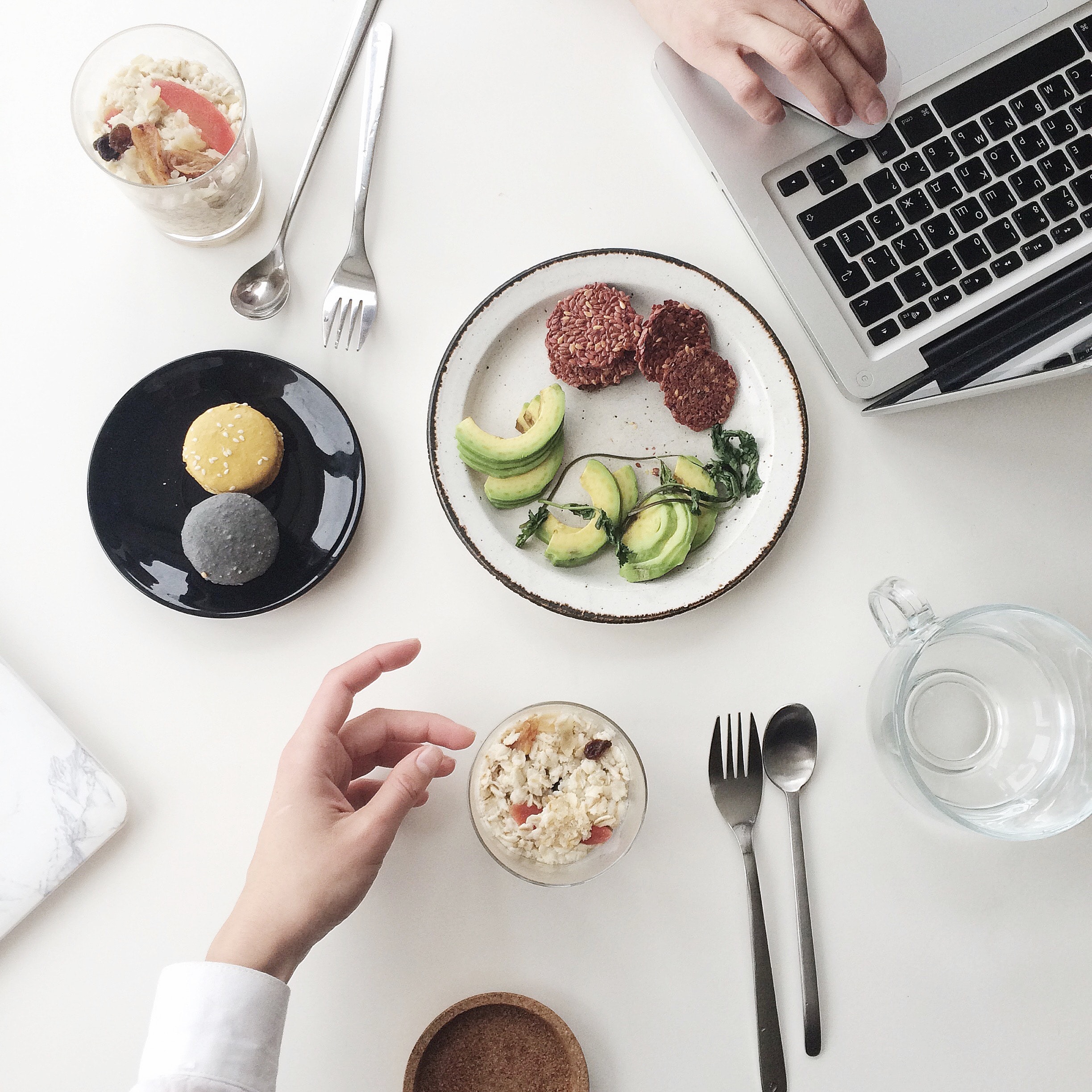We often discuss food in terms of the nutrition it provides, but what about its comfort factor? Yes, food fuels us. Yes, it powers our cellular functions. But food is also so much more than that; it’s institutionally embedded in our emotional lives. Got a promotion? Let’s celebrate over dinner! It’s your birthday? Cake time! Broke up with someone? Pass the Nutella jar! A lot of the time, our food choices and intake is not associated with physiological hunger, but to commemorate a moment, or soothe and comfort us. And since we spend so much time at work, it follows that the emotions we’re experiencing for upwards of seven hours a day could be influencing the way we eat. Emotional eating can be positive or negative, but if you’re stress eating at work or because of work, you need to take a step back to reassess.
What is stress eating?
When you stress eat, you are consuming food in anticipation of, during or after a stressful event or situation. We usually do it to suppress or soothe that sensation of stress, or even as a reward for getting through it (let’s be honest, we’ve all done this after a crazy deadline).
Stress eating is a human thing to do. It’s normal. In fact, we’ll go ahead and guess that pretty much everyone has done it at some point. But what is stress eating has become too regular a habit? Let’s face it, it’s not usually veggie stick or dark chocolate we’re reaching for during these times. It’s more likely to be the types of foods or quantities of food that, if compounded over time, may not be beneficial to your health and well-being.
If any of the above applies to how you eat at or after work, here are some tips to help you take your first steps to stop stress eating at work.
1. Tackle your work stress
Why are you stressed and what can you do about it? Begin by acknowledging that you’re stressed or overwhelmed and then you can work through it. This can look like speaking to a professional, calling a friend, stepping out for a walk in the fresh air or brain dumping in your journal. Your plan of action will depend on your stress levels, but it should never include sweeping it under the rug.
2. Have healthy options on hand
Keep your desk drawer and pantry at home stocked with snacks that won’t derail your health goals. Here are some great work snack ideas from our founder.
3. Eat enough of the good stuff
Are you actually eating enough, and are you eating balanced meals and snacks? Blood sugar levels can alter our moods (the dreaded afternoon slump is a classic example), so eating your meals and snacks regularly can make a big difference. For the average person, we suggest including the following nutritional elements:
- Protein
- Quality carbohydrates
- Healthy fats
- Colour (fruit and veggies)
4. Keep a short-term food diary
This can be a useful tool for helping you to identify stress-related food patterns. Are you making a beeline for the vending machine every Thursday after your tense 9 AM weekly meeting? Are you stress eating on Sundays in anticipation of another busy week? Is there a daily task you dread? A food diary will help to reveal these patterns. Remember, awareness is key.
5. Eat and more stress-reducing & mood-boosting options
Think fatty fish, eggs, natural yoghurt, chamomile, dark chocolate, turmeric, nuts, seeds, fruit and vegetables. Sounds pretty delicious to us!
If you are struggling with your mental health at work or in your more personal life, it’s important to seek help sooner rather than later. A well-balanced diet can really help you as a part of your treatment plan. Book an appointment with our resident mental health dietitian, Lauren, to get started. For more insight into the relationship between mental health and what you eat, follow our Pinterest board focused on this topic so you don’t miss a beat!

